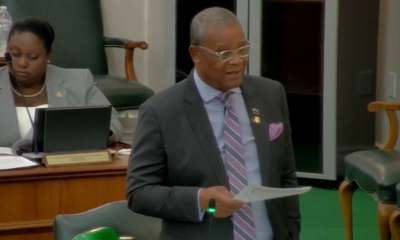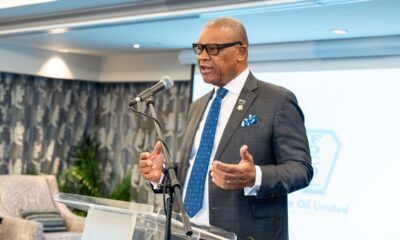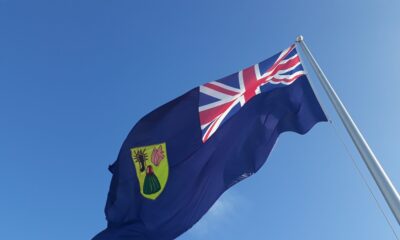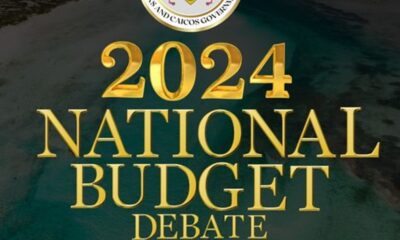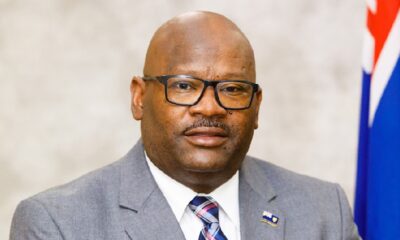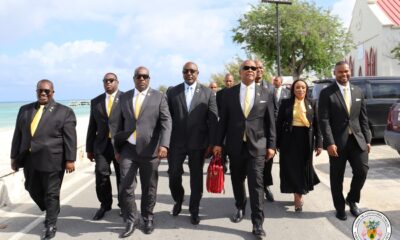By Deandrea Hamilton and Dana Malcolm
Editorial Staff
#TurksandCaicos, February 11, 2023 – In mere days, members of the Royal Family will arrive in The Turks and Caicos islands for the first time since the turn of the millennium.
Magnetic Media learned of arrival of the prestigious guests via a police bulletin in circulation early Friday; it has since been confirmed by Governor Nigel Dakin. The Earl and Countess of Wessex, Prince Edward and his wife Sophie will land in The Turks and Caicos on February 22nd for a two- day visit.
The Earl is the youngest son of Queen Elizabeth II and brother to King Charles III. Like the Queen in 1966 before them, Grand Turk will be their first stop, where they will meet the residents and elected representatives at a reception hosted by Governor Nigel Dakin at Waterloo.
“Here, as well as Government leaders, they will be introduced to some of our remarkable people; everyday heroes who go above and beyond the call of duty in the course of their daily lives,” Dakin said.
After that Providenciales will host the Royals where they will be briefed on the country’s border security, crime and immigration issues first hand as well as meet the people and witness ‘our extraordinary natural habitat including mangroves, unique Iguanas and the third largest Barrier Reef in the world’; witness the competitiveness of our school children; meet our sporting heroes and those working to mentor and empower our young,’ the Governor explained.
Royal Visits are a major undertaking for any country; Turks and Caicos has played host at least seven times ‘officially’ over the years, stretching as far back as the early 1900s as chronicled by the Turks and Caicos National Museum.
There was a 1928 visit by Prince George; the first Royal to travel to Turks and Caicos in an ‘unofficial’ stop aboard the HMS Durban on what was a humanitarian mission. In 1960, the first official Royal visit was by the Princess Royal, Princess Mary which happened in March that year on the island of Grand Turk.
Royal, Princess Mary which happened in March that year on the island of Grand Turk.
In 1966, the most legendary Royal Visit to the TCI included the Queen and her husband and gave life to the now iconic South Caicos Regatta as the Royal Yacht Britannia sailed with Queen Elizabeth II and Prince Philip aboard, greeted in the country’s ‘fishing capital’ by an island sloop flotilla. A regatta was held, awards were bestowed to Islanders and tours in Grand Turk with particular emphasis on the military prowess and role of TCI in the Space Race made the Royal moment particularly distinct.
By 1973, the then Prince Charles would officially drop in, playing two cricket matches. Turks and Caicos players soundly beat the UK marines, but the Prince would go down as having made 12 runs in a losing effort against South Caicos. Twenty years on, in 1993 Prince Philip, his father and the Duke of Edinburgh would repeat in a visit to the Turks and Caicos Islands seeing artifacts of the Molasses Reef Wreck.
History records that the late Duke is the Royal with the most visits to the archipelago. Prince Philip came again in 1977, passing through at the Grand Turk airport and on the 10th October 1980 when he returned as a co-pilot of an RAF Viscount aircraft, which refuelled at Grand Turk airport during its flight from Venezuela to Nassau.
Prince Andrew visited Turks and Caicos in 2000, and was the last Royal to officially make a stop in the territory. It was a three-day stay in March, where he dropped in at Clement Howell High, the Conch Farm, Cheshire Hall Plantation, Beaches Resort and enjoyed a display by the children of Grand Turk.
It is interesting to note that for Prince Edward, Earl of Wessex, this will not be his first time in the Turks and Caicos. It is on record that he enjoyed the world-famous beauty of the islands some 22 years, visiting unofficially in 2001 and staying at the award-winning Parrot Cay.
Now, here in a Royal and Official capacity it is expected that a modern day Turks and Caicos will roll out a range of amazing cultural and scenic opportunities for the pair, giving the world a very public and unique look at the breath-taking wonders and natural beauties of the islands and islanders.
The Office of the Premier will prepare for several invited guests “representing different aspects of the islands’ commercial and civic life” who “will meet the Royals along with Premier Washington Misick and first lady Delthia Misick in a lunch he will host.”
The Governor expressed that he has very specific ambitions for the upcoming Royal visit.
“Our hope is that their Royal Highnesses leave these Islands both better informed but also intrigued by the natural beauty, vibrant society, the challenges and ambitious opportunities, these Islands represent.”


 Caribbean News7 days ago
Caribbean News7 days ago
 Caribbean News7 days ago
Caribbean News7 days ago
 Caribbean News1 week ago
Caribbean News1 week ago
 Caribbean News7 days ago
Caribbean News7 days ago
 Bahamas News7 days ago
Bahamas News7 days ago
 News7 days ago
News7 days ago
 Bahamas News1 week ago
Bahamas News1 week ago
 News7 days ago
News7 days ago

